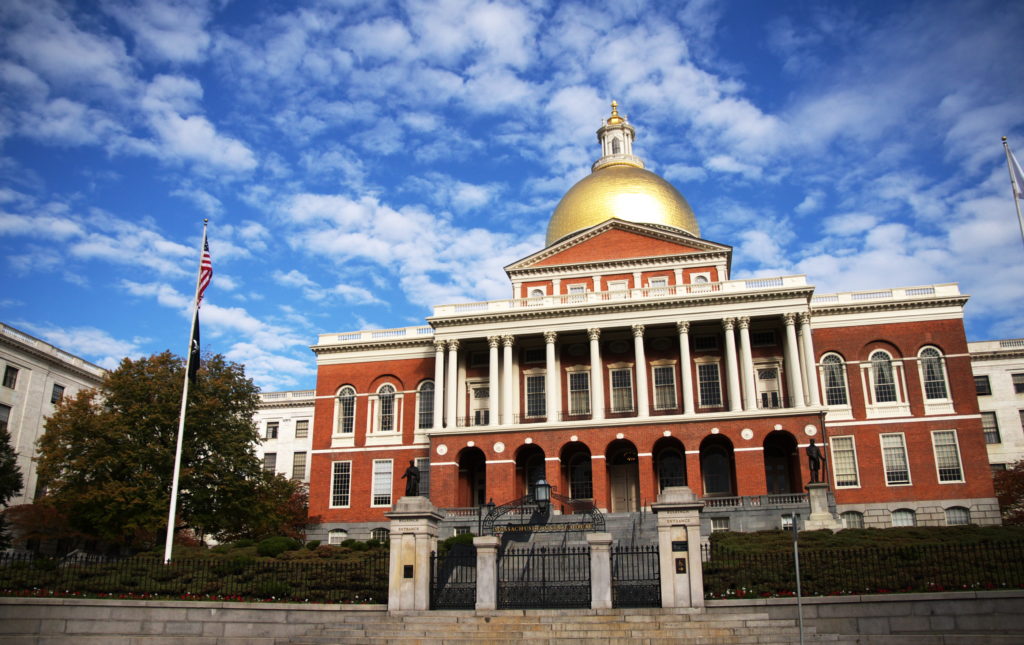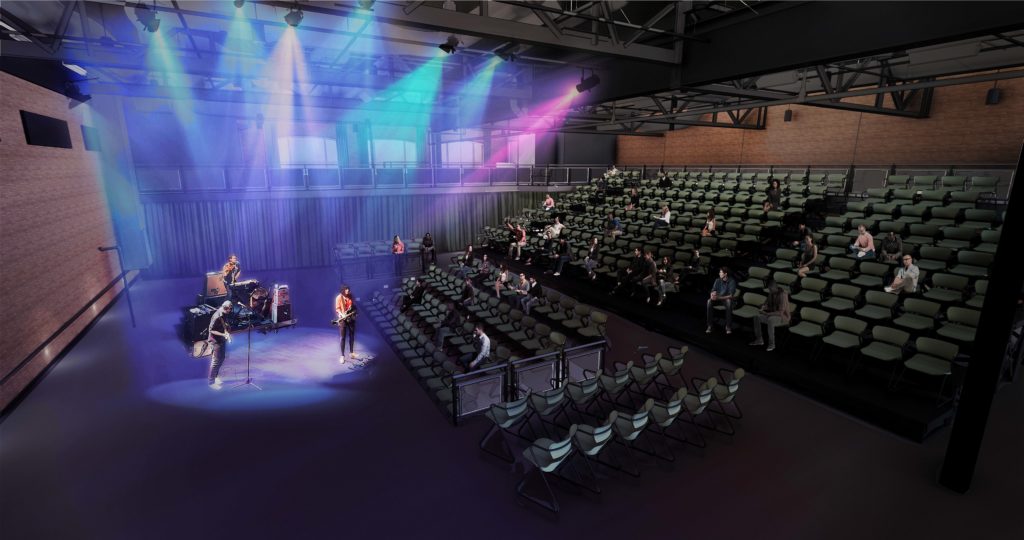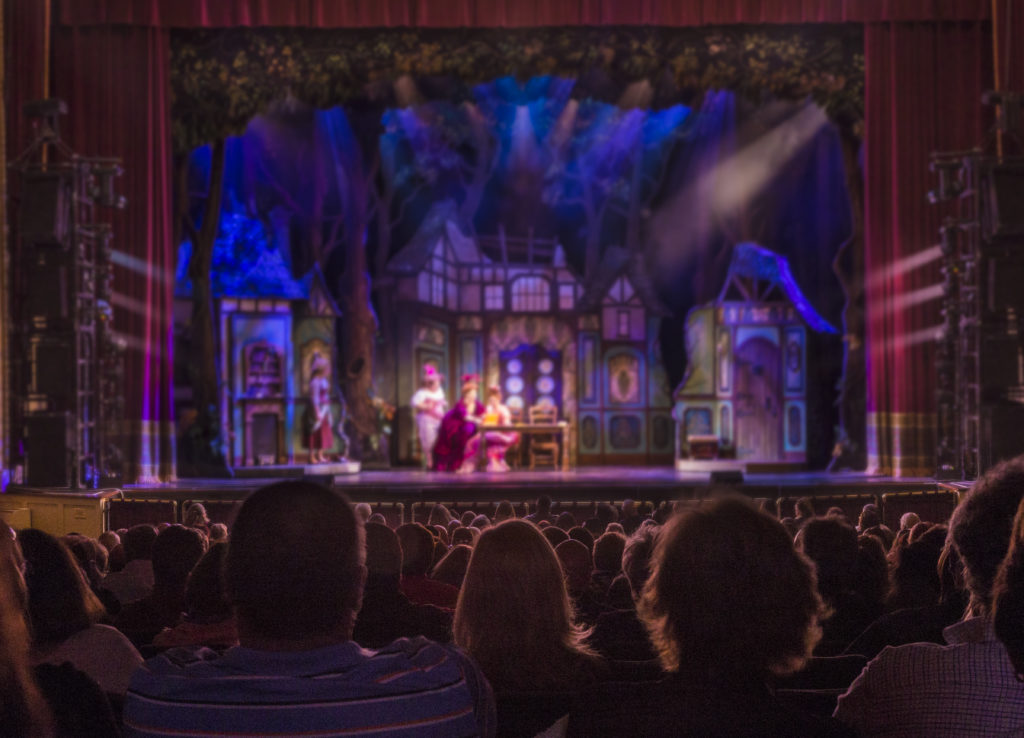The Hanover Theatre and Conservatory president and CEO, Troy Siebels, recently testified before Massachusetts state senators on the impact of COVID-19 on the arts community. Siebels joined Lisa Condit, director of marketing and pr, and WCRN 830AM‘s Hank Stolz on Talk of the Commonwealth for a recap, plus more updates on the future of the theatre. Read on for highlights from the interview, or listen to the full interview below. Then tune into WCRN 830AM Fridays at 9 AM and Saturdays at 1 PM for more behind-the-scenes interviews.
Hank: Troy, you appeared before a Senate subcommittee that is looking at ways to help the economy here in Massachusetts.

Troy: They are gathering information on the impact of this pandemic in the cultural and tourism community, and it’s certainly been impactful on all of us. For the performing arts, we are an industry that is built on the concept of being in the same room and experiencing something live, and that’s exactly the thing we’re not allowed to do right now. The Hanover Theatre and Conservatory has an opening date scheduled right now, but we’re prepared to delay further if needed.
What I told the senators was that, while some organizations can do some social distancing, it doesn’t work for most of what we put on our stage. With the economics of the Broadway tours and the big concerts and comedies and such, we just can’t make it work with the number of people we can fit in that space. We need to do everything we can do to keep that space healthy. There’s a lot we can do, but we need to be able to come back at full capacity.
Lisa: How often do we have the opportunity to get in front of the state? And where are they in the action planning?
Troy: I do, and many of our cultural leaders, have frequent conversations with our elected leaders. Their job is to stay up-to-date on what’s going on. The more we can let them know what we need to succeed, the better they can do their jobs.
Phasing into a Reopening
Lisa: What is it that we’re looking for from the state senate at this point?
Troy: There are lots of voices out there saying that the cultural landscape needs help, and I think that would need to come from a federal level. I don’t think we’re going to go out of business, but I think a lot of our peers around the country might.
This will be a different landscape if there isn’t another intervention, because, while most of the landscape is starting to come back on board, we’re about half way through it, at best.
What we really want from the Massachusetts legislature is clarity in order to plan. We’re in Phase 3, Step 1 now. When we get to Phase 3, Step 2 in the governor’s reopening plan, we’ll be able to perform with limited capacity indoors. We understand they can’t tell us when that’s going to be, but even to understand what it’s going to be is helpful. Things like, there’s language in the governor’s plan that talks about large organizations opening in Phase 4, but there’s no definition of “large.”
Taking Intermediate Steps
Lisa: I think it’s important to distinguish that The Hanover Theatre and Conservatory is doing things to ensure that we have a stronger future. Talk to us about where different things fit into the reopening, so people feel good about the fact that there are intermediate steps.

Troy: The conservatory is a big piece of that. We’re in the midst of three summer sessions online, and that’s going really well. The BrickBox Theater is another component. This is a 250-seat theatre on the next block over, and it’s just finishing construction. We’re looking to open in September or October. With a much smaller seating capacity, it is likely that we can open there before our mainstage, so we are looking at if there things we can do there instead of the mainstage. We’re going to be aggressive about coming up with the most creative ways we can to stay engaged, fulfill our mission and be active in this community.
Understanding the Larger Impact
Lisa: A successful non-profit still has to fulfill a need, and that is one of the things that is important about The Hanover Theatre and Conservatory: Our mission, to foster the love and appreciation of the performing arts.
When you look at the financial impact, and the economic driver that the performing arts are, it’s not just for the artists. It’s also for the whole surrounding business community. That’s really something we’ve had the pleasure to see grow and solidify.
Hank: It was so sobering to hear that there are others in the arts community who aren’t going to be able to get through this, and I think that’s where some of the alarm came from in our community. We’ve got this $5 million revenue loss figure. What does that mean?
Lisa: It’s a very large, scary number. That’s looking at the long-term expectation that this is a serious hit, and we’re not really almost there in any serious way because we don’t know when the end of “there” is going to be. I’m relieved that we’re taking measures so we can come back when it’s safe to do so, and relieved by that investment in our future, as well.
It’s our patrons believing and saying yes, when you come back, we’re going to be there. That’s a huge part of what our financial stability is going to be in the future.
But the fact remains that we don’t have shows right now. That’s where the fundraising and the Resiliency Fund is really important for people who do want to support our organization.

Troy: I want our patrons to have confidence. The Broadway shows are something we can’t present without full capacity, but there are lots of positive examples… In South Korea, a production ran successfully straight through the pandemic. They did it by being responsible. The reality is that 2,000 people sitting in the dark watching a performance is not a spreader event. It’s not a karaoke bar. It’s not a conference where you’re interacting with people all day long. It is possible to do what we do safely.
Once we do come back, it will be a bit of a new normal for a while, but we will do whatever we can do to come back.
